- Home
- Lilith Saintcrow
Wasteland King Page 2
Wasteland King Read online
Page 2
When she finished laughing, the dog was licking the floor clean, its nose bumping the empty cartons with snorfling sounds. She wiped away crystal teardrops on her beautiful cheeks, and walked right past Matt. She smelled like spice and fruit, something exotic, a warm draft that made him think of that day behind the bleachers, soft sloping breasts under his fumbling fingers and Cindy Parmentier’s quick, light breathing scented with Juicy Fruit gum.
The dog passed, its tail whacking him a good one across the shins, way harder and bonier than a dog’s tail had any right to be. Matt staggered. The door opened, early-summer heat breathing into the store’s cave, and Matt ran after her. “You didn’t pay!” he yelled, but he slipped on something a little weird underfoot, like the floor itself was moving to throw him off.
He went down hard, almost cracking his skull on the racks of nudie mags they couldn’t sell inside the Barton city limits. That was the real reason this place held on, and once he started working here the kids at school started laughing even more.
“Ow!” Matt rolled, thrashing to get back up. Something jabbed at his cheek, and something else poked his finger. Tiny, vicious little stings all over him.
The bell over the door tinkled again. “Stop that,” the voice said, low and sweet as warm caramel, with a hidden fierceness. Just those two words made the sweat spring out all over him.
It was a good thing his eyes were closed, or he would have seen the tiny flying things, their faces set in scowling mutiny, their wings fluttering and a deep throbbing blue spreading through the glow surrounding each one of them, spheres of brilliance bleached by both day and fluorescent light but still bolder, richer than the colors of the tired mortal world. Some had gleaming, tiny sewing-needle blades, and their mouths opened to show sharp pearly teeth.
A low, thunderous growl. It was the dog, and Matt rolled around some more, suddenly terrified of opening his eyes. His bladder let go in a warm gush, and the stinging continued.
“I said, Stop it.” Everything inside the store rattled. The floor heaved a little again, and that was when he opened his eyes and saw… them. The little people, some naked and others in tiny rags of fluttering clothing, their delicate insect-veined wings, their sharp noses and the wicked merriment of their sweet, chiming pinprick voices as they chorused.
They darted at him, but the woman said, “No,” again, firmly, even as they piped indignantly at her. “Leave him alone. He’s just a kid.”
They winked out. The door closed with a whoosh, and he lay there in his own urine, quivering. Her footsteps were light tiptaps on the tarmac outside before they were swallowed up by the hum of air-conditioning.
And a faint, low, deadly chiming. Little pinpricks of light bloomed around him again, and he began to scream.
Not long afterward Matt Grogan got up, tiny teethmarks pressed into his flesh on his face and hands, bloody pinpricks decking every inch of exposed skin. He bolted through the door without waiting for it to open, shattering glass into the parking lot.
He ran into the sagebrush wilderness, and nobody in Barton ever saw him again.
MISLAID
3
Summerhome rose upon its green hill, its pennants in wind-driven tatters. The walls should have been gloss-white and greenstone, the towers strong and fair like the slim necks of ghilliedhu girls, and around its pearly sword-shapes the green hills and shaded dells should have rippled rich and verdant. The Road should have dipped and swayed easily, describing crest and hollow with a lover’s caress; there were many paths, but they all led Home.
The hills and valleys were green and fragrant, copse and meadow drowsing under a golden sun. They were not as rich and fair as they had been before, nor did they recline under their own vivid dreams as in Unwinter’s half of the year. The ghilliedhu girls did not dance as they were wont to do from morning to dusk in their shady damp homes; the pixies did not flit from flower to flower gathering crystal dewdrops. The air shimmered, but not with enticement or promise. Strange patches spread over the landscape of the more-than-real, oddly bleached, a fraying paper screen losing its color.
The trees themselves drew back into the hollows, the shade under their branches full of strange whispers, passing rumor from bole to branch.
Rumor—and something else.
Occasionally, a tree would begin to shake. Its spirit, a dryad slim or stocky, hair tangling and fingers knotting, would go into convulsions, black boils bursting from almost-ageless flesh. First there were the spots and streaks of leprous green, then the blackboil, then the convulsions.
And then, a sidhe died, the tree withering into a rotting stump oozing brackish filth.
The dwarven doors were shut tight, admitting neither friend nor foe, and the free sidhe hid elsewhere, perhaps hoping the cold iron of the mortal world would provide an inoculation just as mortal blood did. Some whispered the plague was an invention of the mortals, jealous of the sidhe’s frolicsome immortality, but it was always answered with the lament that no mortal believed in the Good Folk anymore, so that was impossible.
Summerhome’s towers were bleached bone, and the greenstone upon them had paled to pastel instead of forest. A pall hung over the heart of Summer, the fount the Seelie held all Danu’s folk flowed from. The vapor carried an unfamiliar reek of burning, perhaps left over from the disposal of quick-rotting bodies, both from Unwinter’s recent raid and from the plague itself.
Sparse though the latter was, there was no real hope of it abating. Not now that Summer’s borders had been breached, and the sickness brought in.
From the sugarwhite shores of the Dreaming Sea to the green stillness of Marrowdowne, from the high moors where the giants strode and those of the trollfolk allied to Summer crouched and ruminated in their slow bass grumbles to the grottos where naiads peered anxiously into still water to reassure themselves that their skin was unmarked, Summer quivered with fear and fever.
Inside the Home’s high-vaulted halls, brughnies scurried back and forth in the kitchens, but no dryads flocked to carry hair ribbons and little chantment spangles for their betters. The highborn fullbloods, most vulnerable to the plague, kept an unwonted distance from each other, and some had slipped away to other estates and winter homes, no doubt on urgent business.
On a low bench on a high dais, among the repaired columns of Summer’s throne room, she sat, slim and straight and lovely still, her hands clasped tight in her lap. Her mantle was deep green, her shoulders peeking glow-nacreous through artful rends in rich fabric. The Jewel on Summer’s forehead glowed, a low dull-emerald glare. It was not the hurtful radiance of her former glory, but her golden hair was still long and lustrous, and her smile was still as soft and wicked as she viewed the knights arrayed among the forest of fluted stone.
Broghan the Black, called Trollsbane, the glass badge of Armormaster upon his chest, stood on the third step of the dais. He did not glance at the knight who knelt on the second, a dark-haired lord in full armor chased with glowing sungold. Dwarven work, and very fine; Broghan’s own unrelieved black was all the more restrained in comparison.
Or so he wished to think.
The golden knight with the brun mane, Summer’s current favorite, stared at her slippered feet, waiting for a word. Once, he had worn small golden flowers in his hair, when his lady had been one of the Queen’s handmaidens.
No more.
Summer did not let him wait long. “Braghn Moran.” Soft, so dulcet-sweet, the most winning of her voices. The air filled with appleblossom scent, white petals showering from above as layers of chantment, applied at festival after festival, woke in response to her will. “A fair lord, and a fell one.”
“Your Majesty does me much honor,” he murmured in reply. No ripple stirred among the serried ranks, though no doubt a few of them grudged him said honor. They had already forgotten a wheat-haired mortal boy’s brief tenure as the apple of Summer’s black, black eye, and Braghn Moran’s sighs and hollow cheeks during it.
The wiser knew it was only
a matter of time before any favor she bestowed upon him was lost in due course. Fickle as Summer, some said—though never very loudly. Braghn Moran’s golden-haired lover had left Court not long ago, when Summer’s gaze had snared the one who wore her flowers.
The sidhe did not share. But when Summer took, what could another elf-maid do? The Feathersalt was of an old and pure name, and her absence was perhaps not quite with Summer’s leave… but that was a matter for later.
“Something troubles me, Braghn.”
The knight could have observed that there were many troublesome things afoot among the sidhe lately, but he did not—perhaps a mark of wisdom in itself. He simply examined the toe of Summer’s green velvet slipper, peeking out from under the heavy folds of her mantle. If he compared it to another lady’s, none could tell.
Summer pressed onward. “I seek a certain troublesome sprite, and I would have you find him for me.”
“Who could not come, when you call?” Broghan the Black commented.
Summer did not spare him so much as a glance. “I believe Puck Goodfellow is leading a certain former Armormaster down many a path.”
A rustle now did pass through the ranks of Seelie knights.
Gallow. The Half who had committed the unforgivable, who had killed a peaceful envoy, then insulted Summer and all of Seelie to boot.
“You wish me to kill Gallow?” Braghn Moran did not sound as if he considered it much of a challenge.
Summer’s faint smile widened a trifle. “No, my dear Braghn. Puck Goodfellow has mislaid his head; it belongs upon my mantelpiece where I may gaze upon it. I have had enough of his play at neutrality. If the free sidhe are not with us, they are with Unwinter.” Cruel and cold, her beauty now, not the visage of the simple nymph it otherwise pleased her to wear. This was a different face, one haughty and motionless as marble. “And I will not tolerate Unwinter’s insolence further.”
Braghn Moran rose. He glittered as he stood before Summer, stray gleams of sunshine striking from dwarven-carved lines on breastplate, greaves, armplates. Fine strands of honey in his chestnut hair caught the light as well. “Yes, my Queen.”
“Do this, and you shall be my lord.” She smiled, softening, a kittenish moue on her glossy carmine lips. Petals showered through the air, shying away from each sidhe’s breathing cloak of chantment.
Moran made no reply, merely turned on his heel. The ranks parted for him, and some may have noticed he did not swear to her before he left, nor did he glance back. His face was set and dark, and when the doors closed behind him, Summer’s smile fled.
“The rest of you,” she continued, “are required for other work.”
Tension crackled between the floating petals, each exuding a crisp apple scent as it touched the floor. For Summer to expend her strength on this glamouring, for her to appear thus, was perhaps not quite wise in her recent state.
But who would tell her as much?
She finally gave them their task. “Jeremiah Gallow, once Armormaster, offends your queen.” Her hands tightened against each other in her lap. “Kill him, and bring Unwinter’s Horn to me.”
NOT YET
4
Blackness. And cold. At least the great high-crested waves of agony, each with their glassy teeth tearing at his flesh, had stopped. They receded like chill water along a rock-strewn beach, and he was left in womblike dark, upon cold stone.
Jeremiah Gallow curled around his own heartbeat, the dumb persistent rhythm that had accompanied him from the beginning. His mortal mother, laboring in agony and dying as he first drew breath, could never tell him who his father was. Nor could the black-suited Fathers at the orphanage, preferring instead to ascribe all the boys under their care to the persistence of many-headed Sin itself.
Sin, like Charity and Obedience, was often upon the Fathers’ lips, and meant something different each time they said it. In that, they were like the sidhe.
Jeremiah saw the orphanage again, the dingy halls ruthlessly scrubbed, the scratchy uniforms, the cold, narrow benches where boys sat in rows to learn by rote. The wooden paddles, polished with many beatings. Finding out how to whisper the locks and escape had filled him with a heady sense of invincibility, one that hadn’t fully deserted him through all the subsequent years.
Until Daisy died. The mortal girl he’d left Summer for, swearing to himself that he was different, not a faithless fickle sidhe who would abandon a woman after a season.
No, instead there had been the car accident. Her mortal fragility, shattered. The machines keeping her alive, and the silence when they halted.
Which brought him, finally, to Robin.
I won’t ever be my sister.
What did it make him, now that Daisy’s face blurred and a sharper, finer one took its place, with the gloss of sidhe beauty? Coppergold hair, dark-blue eyes, a sweet mouth… but it wasn’t there the real loveliness lay.
No, it was in other places. A Half girl truer than cold iron itself, who makes you look the faithless hag you are. He almost wished she’d been there, in Summerhome, to hear him say it.
Was she still alive? They’d taken her locket, it would be a simple matter to track her from true metal she’d worn at her throat for so long. She needed him.
Which brought him to full consciousness, alert in the dark, abed on cold stone, a gush of sweat breaking from his skin as he uncurled. His body responded with its usual alacrity, no dragging slowness, none of the agonizing spiked heat of poison along his side where Unwinter’s knifeblade had stroked.
He was on a stone shelf, and he still wore his old armor—the first set of sidhe work he’d ever bargained for and won. It was of a cut not favored by Summer’s knights, and for a pikeman who needed room to maneuver besides. Not for him an elfhorse and a broadsword or a sickle newmoon blade, though he could fight mounted, if he had to. And had, more than once.
His arms tingled. If there was any light, he’d be able to see the marks moving on his skin. Mortals would mistake them for tribal tattoos, maybe. Daisy had asked him if he was a sailor or a biker, one of her few questions.
Now he wondered why she never asked more.
He staggered the dimensions of the cell. Five strides by five, barking his shins on the bed. A wet bandage against his eyes, claustrophobia briefly closing his throat. Sidhe were creatures of air, if not light, and any mortal would be uncomfortable locked in a stone cube, too.
His arms ran with prickles, just treading the edge of actual pain. The medallion against his chest, a circle of burning frost, was a good reminder of why he was here.
Unwinter hadn’t killed him. Instead, the lord of the Unseelie had taken the poison from the wound, and left him here to rot. A Half wouldn’t starve to death, but he could grow attenuated indeed, and waste away of solitude itself.
No. Clarity returned. Robin.
If he was still alive, he needed to be fighting. But really, why hadn’t Unwinter just fucking killed him? It didn’t make sense.
Gallow exhaled, concentrating. It was hard, at first—that was new. The prickles turned to needles piercing skin and flesh underneath, and he couldn’t ever remember the lance being so sluggish. Not since the first time he’d called it out of the dwarven-inked marks, and almost died.
A faint gleam around his fingers stung his dark-adapted eyes. He exhaled, harshly, and familiar solidity thocked into his palms. Shorter than usual, because of the confined space, the lance hummed, the tassels of its blunt end dripping a low punky moonfire. Gallow blinked rapidly. The faint light hurt, not along the marks but scouring his eyes. The dark was better, but he squinted, ignoring hot welling tears.
Cold gray stone, almost like slate, but with thin colorless veins. There was only one place, in the real or more-than-real, where the cells were built of thanstone, meant to keep chantment and glamour from effecting a release of the poor assholes caught in them. There was a door, too, of sheer dark metal. It looked goddamn imposing, and the thin colorless veins in the thanstone had branched into its fa
bric, little clutching fingers deadening both chantment and light.
The lance’s leaf-shaped blade lengthened slightly. It quivered, nowhere near its full substantial strength. Gallow concentrated, and the blade-edge flushed with rose-ruddy heat.
Iron, that most inimical of mortal metals. Only a Half could survive the marriage of the lance—too much mortal, and the weapon would kill you before it would yield, too much sidhe, and it would ironblight you from the marks inward. The dwarves had said it was possible—a weapon you could never lose, a weapon that would never break.
Jeremiah Gallow had brought the dwarves what was required, and said Do it. It was probably the last real decision he’d made. Everything after that had just been… well, a man did what he had to.
Even a Half. Pushed along by one bloodline, pulled by the other.
He examined the door, still blinking furiously. Felt like he had bleach in his eyes, dammit.
It turned into a moot point, because under the sound of his breath and the persistent thudding of his heart, another music intruded.
Footsteps.
He hopped onto the shelf-bed, the lance’s light growing steadier. The lives he took vanished into its hungry core, and battle only made them both stronger. Something had drained the lance, but he might get a chance to add strength in the next few moments.
Creaking. Dusty clockwork cogs shrieking as they turned, grudging each inch of motion. Whoever it was hadn’t taken any chances; they wanted him to stay. Even cold iron might not cut through such a door.
Unwinter has me. I’m not dead.
Of the two sentences, he couldn’t say which was more disturbing.
The groaning and shuddering increased. Finally, with a rusting scream, the door hauled itself open an inch, another. Ruddy torchlight sliced through and Jeremiah folded into a crouch, the lance keening softly as it clove air in small precise circles and found no resistance. It would show him a map of the battle inside his head.

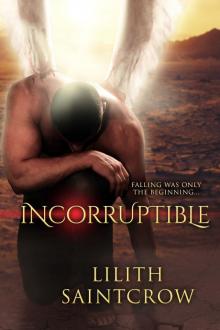 Incorruptible
Incorruptible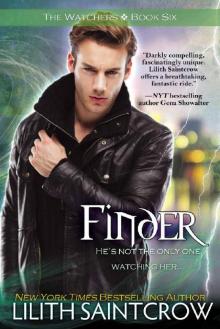 Finder (The Watchers Book 6)
Finder (The Watchers Book 6)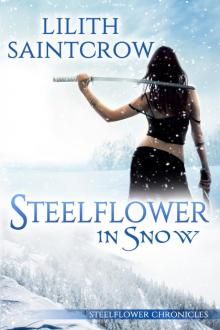 Steelflower in Snow
Steelflower in Snow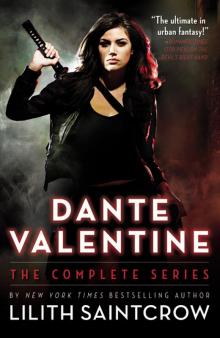 Dante Valentine
Dante Valentine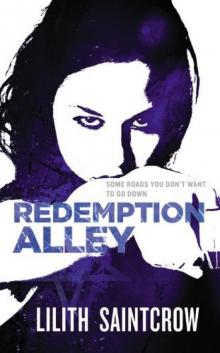 Redemption Alley-Jill Kismet 3
Redemption Alley-Jill Kismet 3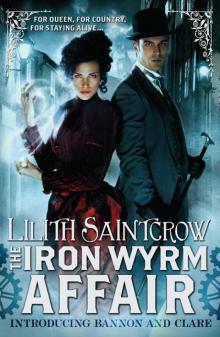 The Iron Wyrm Affair
The Iron Wyrm Affair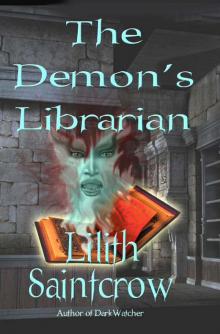 The Demon's Librarian
The Demon's Librarian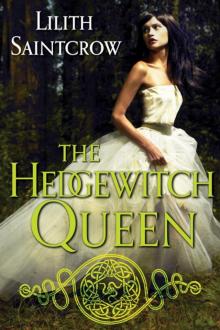 The Hedgewitch Queen
The Hedgewitch Queen Redemption Alley
Redemption Alley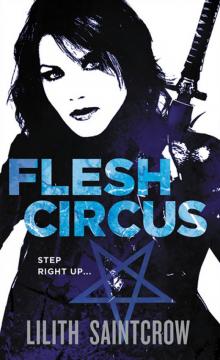 Flesh Circus
Flesh Circus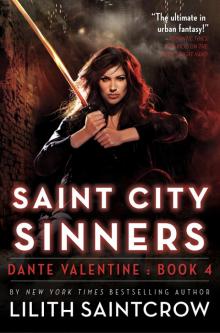 Saint City Sinners
Saint City Sinners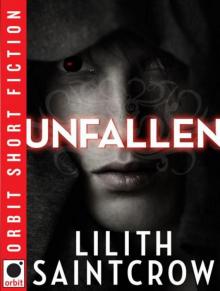 Unfallen
Unfallen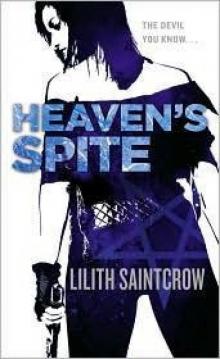 Heaven’s Spite
Heaven’s Spite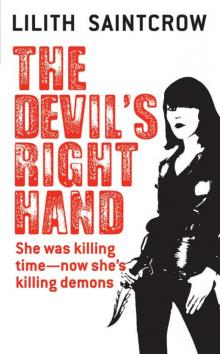 The Devil s Right Hand
The Devil s Right Hand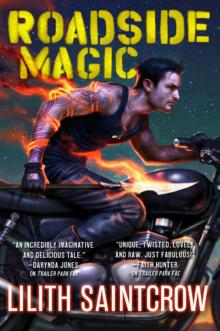 Roadside Magic
Roadside Magic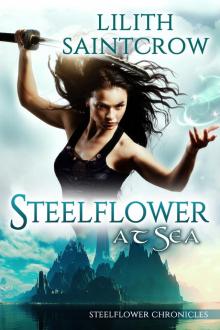 Steelflower at Sea
Steelflower at Sea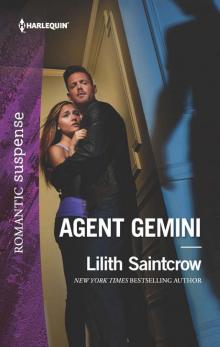 Agent Gemini
Agent Gemini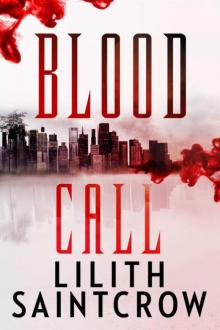 Blood Call
Blood Call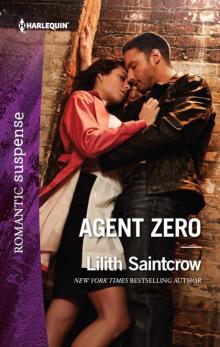 Agent Zero
Agent Zero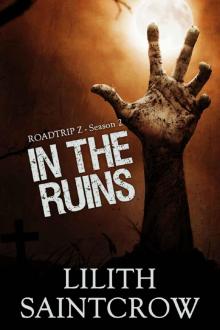 In The Ruins
In The Ruins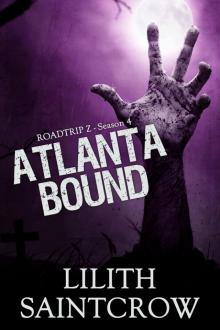 Atlanta Bound
Atlanta Bound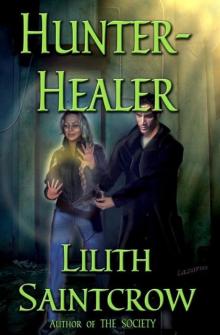 Hunter, Healer
Hunter, Healer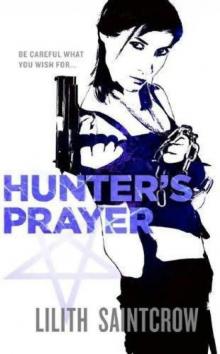 Hunter's Prayer
Hunter's Prayer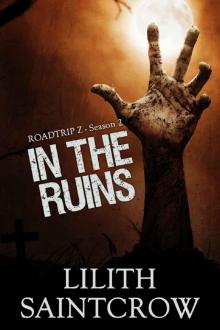 Roadtrip Z_Season 2_In The Ruins
Roadtrip Z_Season 2_In The Ruins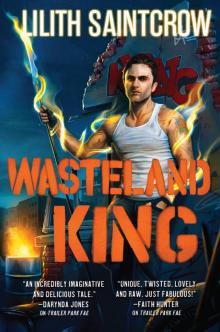 Wasteland King
Wasteland King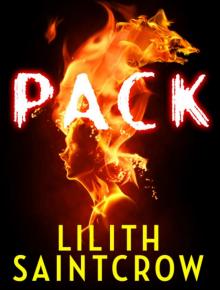 Pack
Pack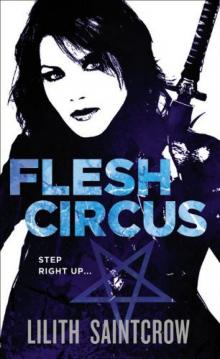 Flesh Circus - 4
Flesh Circus - 4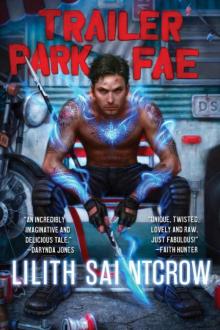 Trailer Park Fae
Trailer Park Fae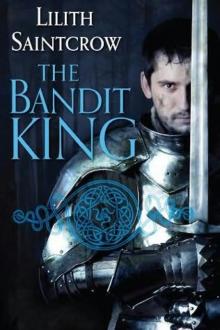 The Bandit King h-2
The Bandit King h-2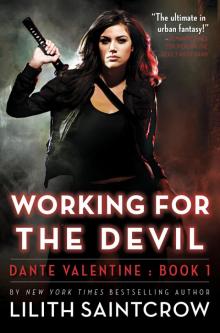 Working for the Devil
Working for the Devil Pocalypse Road
Pocalypse Road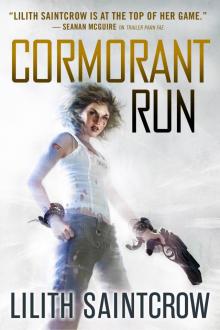 Cormorant Run
Cormorant Run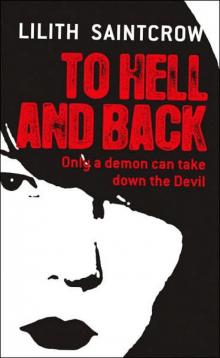 Dante Valentine Book 5 - To Hell and Back
Dante Valentine Book 5 - To Hell and Back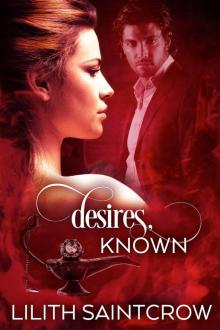 Desires, Known
Desires, Known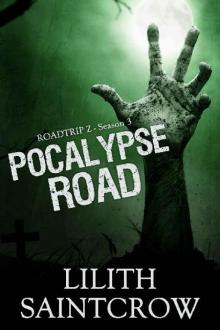 Roadtrip Z (Season 3): Pocalypse Road
Roadtrip Z (Season 3): Pocalypse Road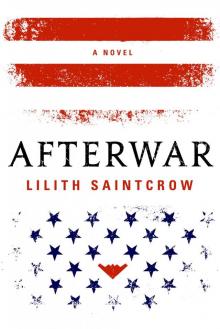 Afterwar
Afterwar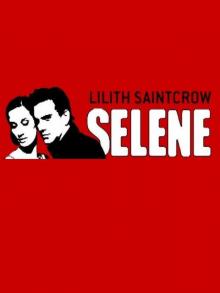 Selene
Selene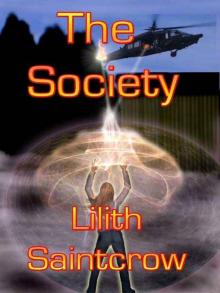 The Society
The Society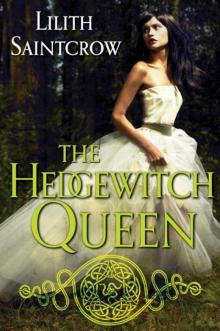 The Hedgewitch Queen h-1
The Hedgewitch Queen h-1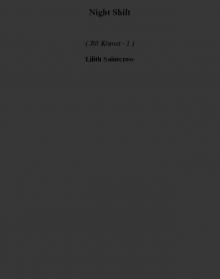 Night Shift jk-1
Night Shift jk-1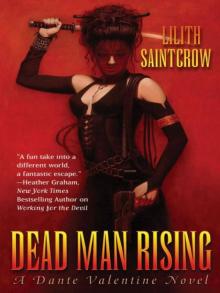 Dead Man Rising
Dead Man Rising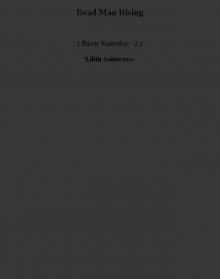 Dead Man Rising dv-2
Dead Man Rising dv-2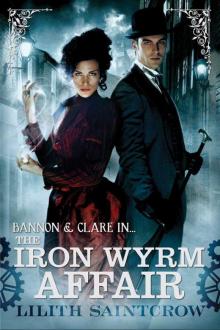 The Iron Wyrm Affair: Bannon and Clare: Book 1
The Iron Wyrm Affair: Bannon and Clare: Book 1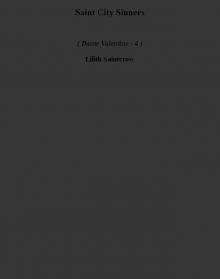 Saint City Sinners dv-4
Saint City Sinners dv-4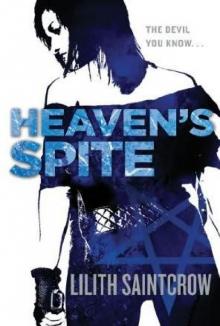 Heaven's Spite jk-5
Heaven's Spite jk-5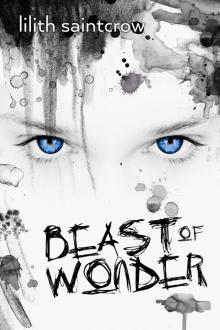 Beast of Wonder
Beast of Wonder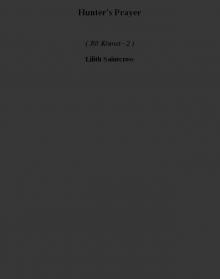 Hunter's Prayer jk-2
Hunter's Prayer jk-2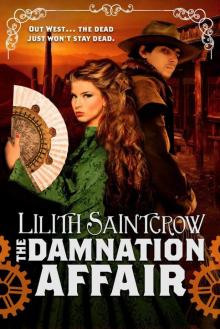 The Damnation Affair
The Damnation Affair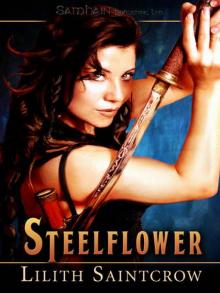 Steelflower
Steelflower The Red Plague Affair: Bannon & Clare: Book Two
The Red Plague Affair: Bannon & Clare: Book Two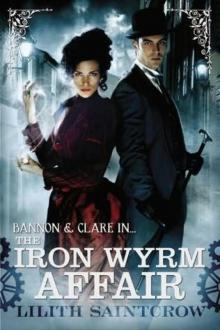 The Iron Wyrm Affair tb&ca-1
The Iron Wyrm Affair tb&ca-1 Flesh Circus jk-4
Flesh Circus jk-4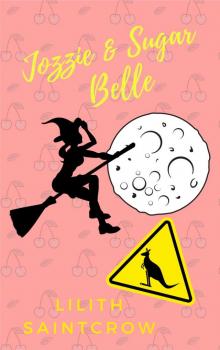 Jozzie & Sugar Belle
Jozzie & Sugar Belle Night Shift
Night Shift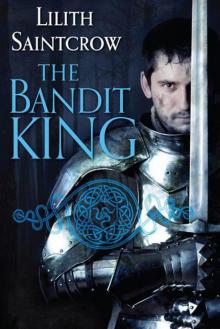 The Bandit King
The Bandit King![Hunter, Healer [Sequel to The Society] Read online](http://i1.bookreadfree.com/i1/04/05/hunter_healer_[sequel_to_the_society]_preview.jpg) Hunter, Healer [Sequel to The Society]
Hunter, Healer [Sequel to The Society]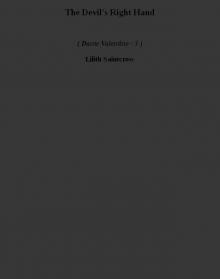 The Devil's Right Hand dv-3
The Devil's Right Hand dv-3 To Hell and Back dv-5
To Hell and Back dv-5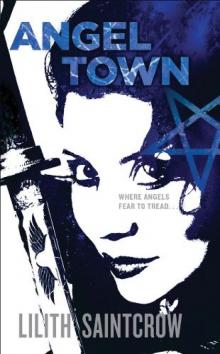 Angel Town
Angel Town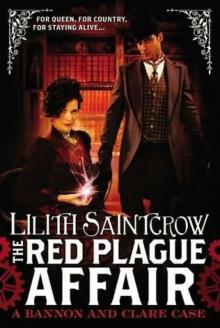 The Red Plague Affair tb&ca-2
The Red Plague Affair tb&ca-2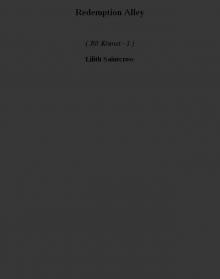 Redemption Alley jk-3
Redemption Alley jk-3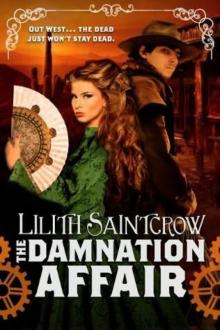 The Damnation Affair (the bannon & clare affairs)
The Damnation Affair (the bannon & clare affairs) Working for the Devil dv-1
Working for the Devil dv-1